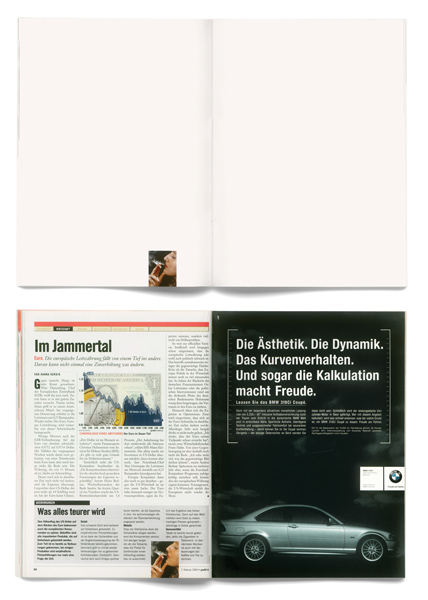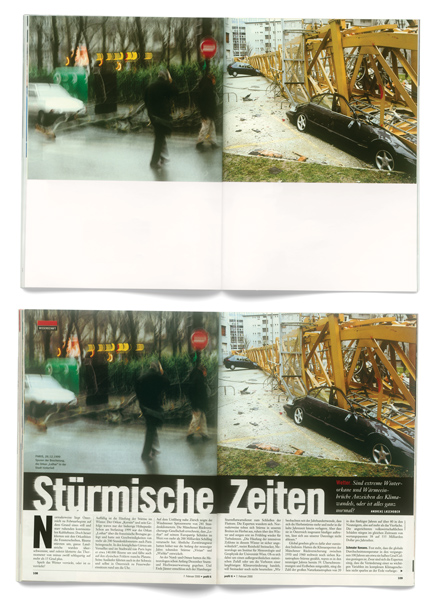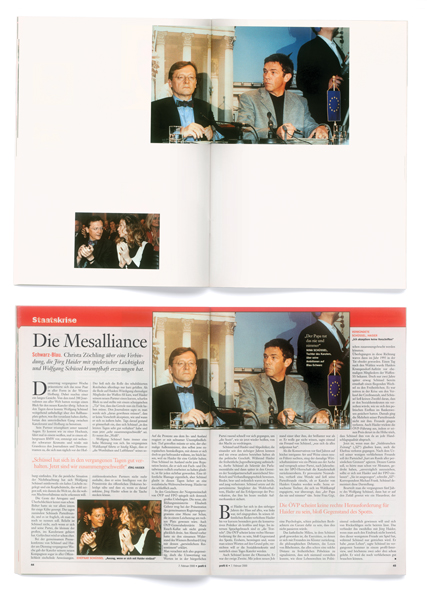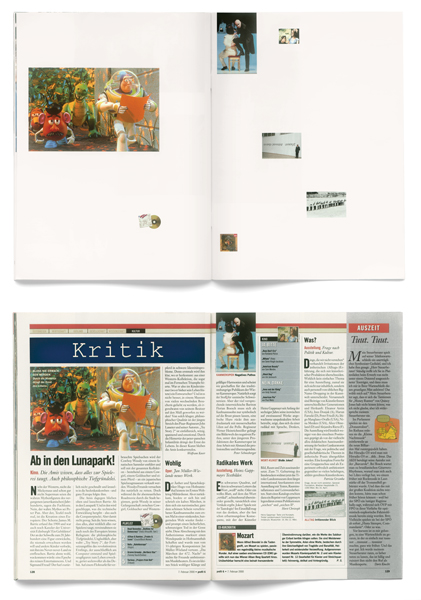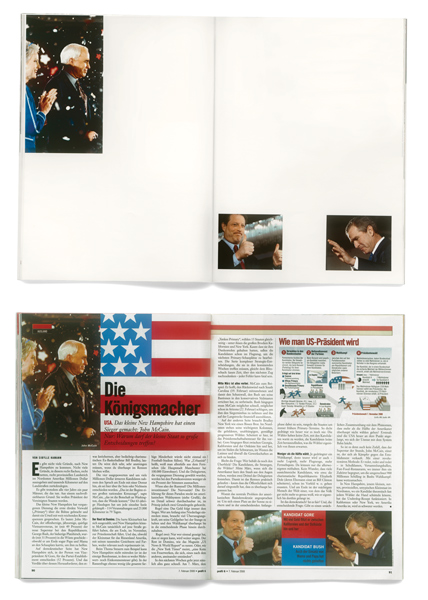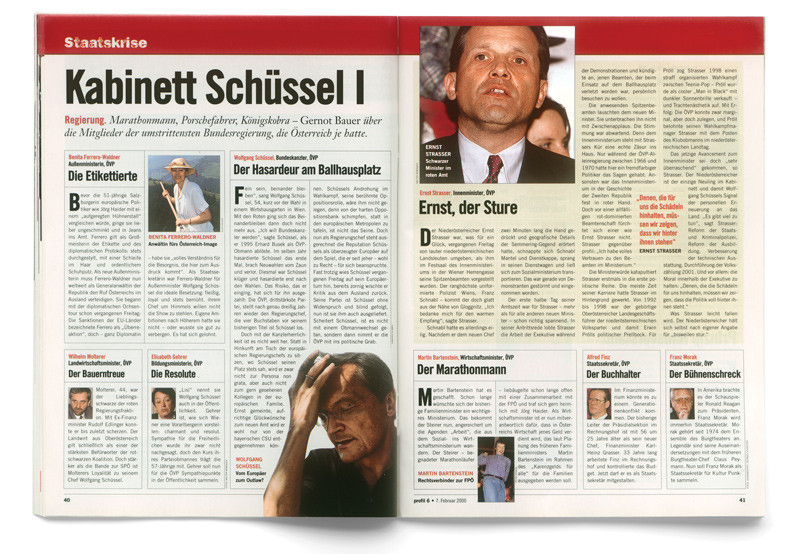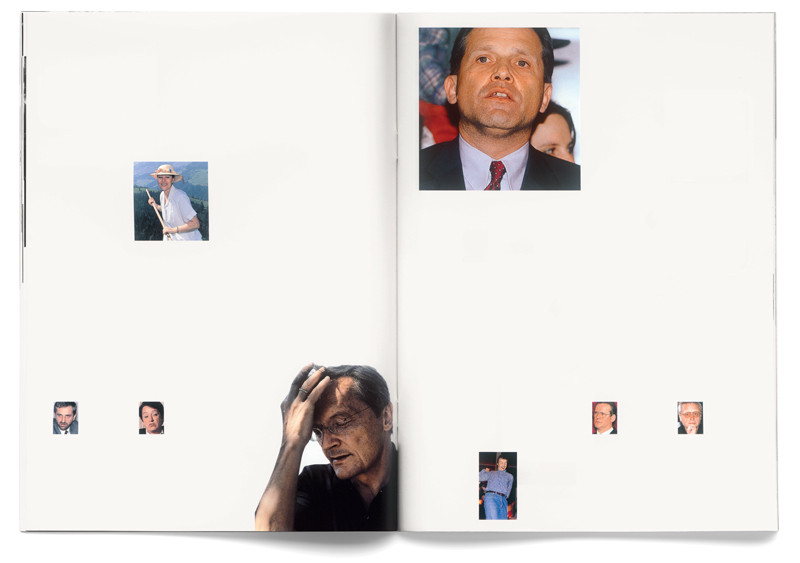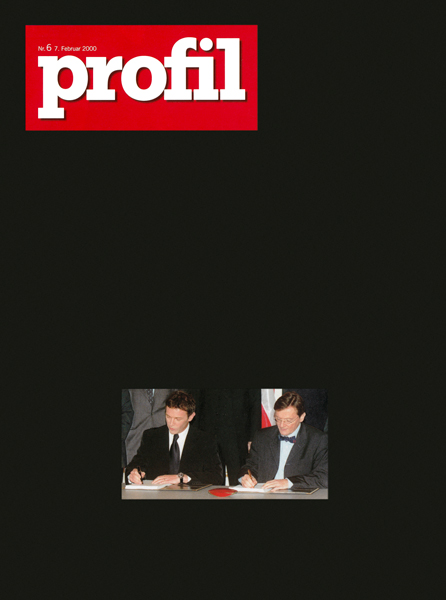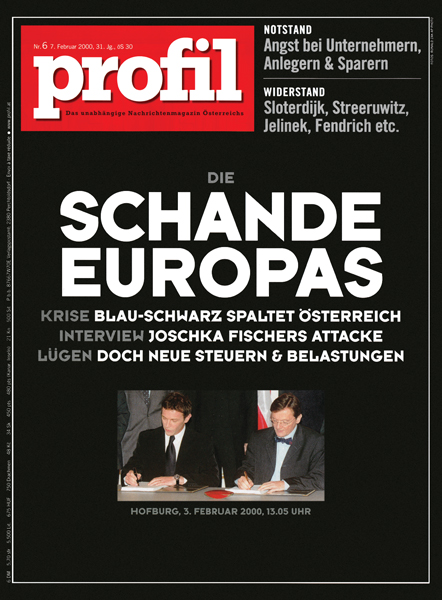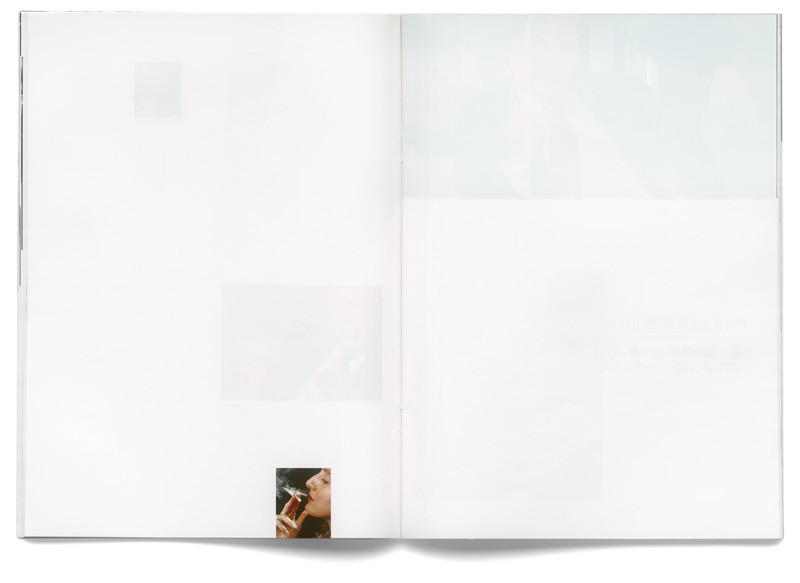[Fall 2009]
Hans-Peter Feldmann was already a dominant figure in German conceptual art when, in the late 1960s, he began to produce works based on the reproduction of images already reproduced in series, without commentary or legend. He was also involved with the creation of the magazine Ohio (1995), which featured the publication of series of images from non-art sources, again without commentary.
In the 1970s, Feldmann conceived of the project of publishing a version of a magazine that would contain only its images, with all of the text deleted. He never, however, managed to obtain permission from a publi- cation until he partnered with museum in progress and managed to convince profil, an Austrian news magazine, to collaborate in the project. This was not profil’s first collaboration with museum in progress; the magazine had devoted a double-page spread in each of its issues for the years 1995 and 1996 to the presentation of twelve contemporary artists participating in the exhibition Travelling Eye curated by Stella Rollig and Hans Ulrich Obrist.
Produced from the layout of the 7 February 2000 issue of profil, from which Feldmann eliminated all textual content, including ads and other types of illustrations, profil without words is a visual excerpt of current affairs – political, economic, and cultural – as transmitted by a news magazine. It is a sort of ready-made, a media object transformed into a work of art by appropriation and extraction. By preserving the format, layout, and relationship between the images in the original magazine, Feldmann makes the images in profil without words talk for themselves and reveals how the visual material is formatted.
In preparation for a long time and planned for late February 2000, the publication of profil without words was delayed due to the political situation prevailing in Austria at the time with the ascent to power of the extreme right.
museum in progress
The mandate of museum in progress, a non-profit art association founded in 1990, is to develop innovative forms of presentation for contemporary art by encouraging cooperation among the business, media, and arts worlds. Specializing in the use of media platforms, the association has initiated numerous art projects infiltrating spaces belonging to, successively, the print media, telecommunications, and advertising, with the objective of broadening the audience for art. The projects of museum in progress always take into account the context of their insertion and the format of the media selected, and they are produced on a temporary basis. Artistic freedom and political independence are essential to the organization’s functioning, and it ensures that it has a margin for manoeuvre by negotiating binding agreements with its many partners. The projects supported by museum in progress are made possible thanks to its proximity to the sponsorship group artpool, formed of international companies that support contemporary art and defend artistic freedom. [www.mip.at/]
Translated by Käthe Roth
A German conceptual artist, Hans-Peter Feldmann is regarded as a forerunner of appropriationist art popularized in the 1980s. Since the beginning of his career, Feldmann has produced works from found objects or photographs culled from newspapers or bought in flea markets. The author of numerous artist’s books, he reflects, through his practice, on issues involving the original and the copy, the unique versus the multiple. His important solo show 272 pages was organized by the Antoni Tapies Foundation in 2002, followed in 2003 by a major retrospective organized by the Ludwig Museum in Cologne. Feldmann was born in 1941 in Dusseldorf, where he works and lives today. He is represented by the 303 Gallery in New York.

